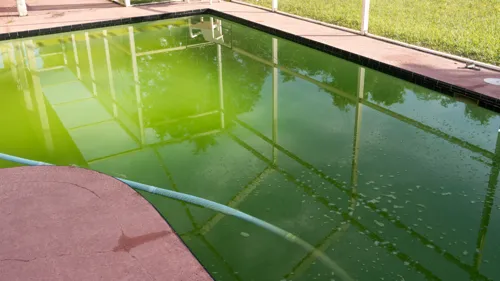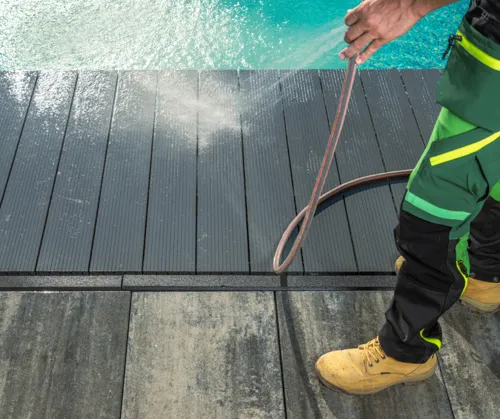Hard water in pools can lead to issues like scale buildup, cloudy water, and clogged equipment. Recognizing hard water signs early and using appropriate treatments and regular maintenance practices are essential. Here’s a guide to managing hard water effectively for a clean, well-maintained pool.
Identifying hard water signs
Hard water is high in minerals like calcium and magnesium, which often leave scale deposits on tiles, surfaces, and pool equipment. Common signs of hard water include cloudy water, chalky white or grayish deposits along the waterline, and rough or gritty surfaces. Spotting these signs early allows for timely intervention before hard water impacts the pool’s function and appearance.
Regular pH and calcium checks
Keeping an eye on pH and calcium hardness is crucial for managing hard water. High calcium levels can make water cloudy and cause scaling, so maintaining a balanced level is essential. Ideally, the pH should stay between 7.4 and 7.6 to reduce scaling risk, as imbalanced water chemistry can worsen mineral deposits. Routine testing helps keep water chemistry stable, preventing further hard water issues.

More information about the price of swimming pool maintenance can be found in our cost guide.
Using water softeners
Water softeners are useful for reducing mineral levels in pool water, especially calcium, which contributes to scaling. Typically used in household systems, water softeners can be added temporarily to pool systems to lower mineral content. Softened water minimizes the buildup of scale, and regular pH checks ensure water balance isn’t disrupted by softener use.
The pH level should stay between 7.4 and 7.6 to reduce scaling risk.
Chemical additives
In regions with consistently hard water, chemical additives like sequestrants are effective for controlling mineral buildup. These chemicals work by binding to calcium and magnesium, keeping them suspended in the water to prevent scaling on pool surfaces and equipment. Adding sequestrants regularly as part of pool maintenance reduces the visible effects of hard water over time.
Routine filter maintenance
Minerals from hard water can clog pool filters, which reduces filtration efficiency and affects water clarity. Regularly cleaning or backwashing filters prevents clogging from mineral deposits and maintains proper water circulation. Routine filter maintenance ensures the filtration system continues to manage hard water effectively, preserving water quality.

Read another one of our articles on swimming pools, which talks about the top 5 solutions for preventing algae growth in swimming pools.
Professional treatments
When hard water has caused significant buildup, professional treatments like acid washing or specialized filtration may be needed. Acid washing can remove calcium deposits and other mineral stains from pool surfaces, while reverse osmosis filtration removes excess minerals directly from the water. These treatments are especially useful for pools with severe hard water issues that standard methods can’t fully address.
Combining regular maintenance, water testing, and targeted treatments is key to managing hard water in pools. With water softeners, sequestrants, and professional treatments as needed, pool owners can maintain clear, scale-free water and enjoy a better-maintained pool environment.
Request a quote for swimming pool maintenance on Procompare today to keep your pool’s water balanced and clear!







